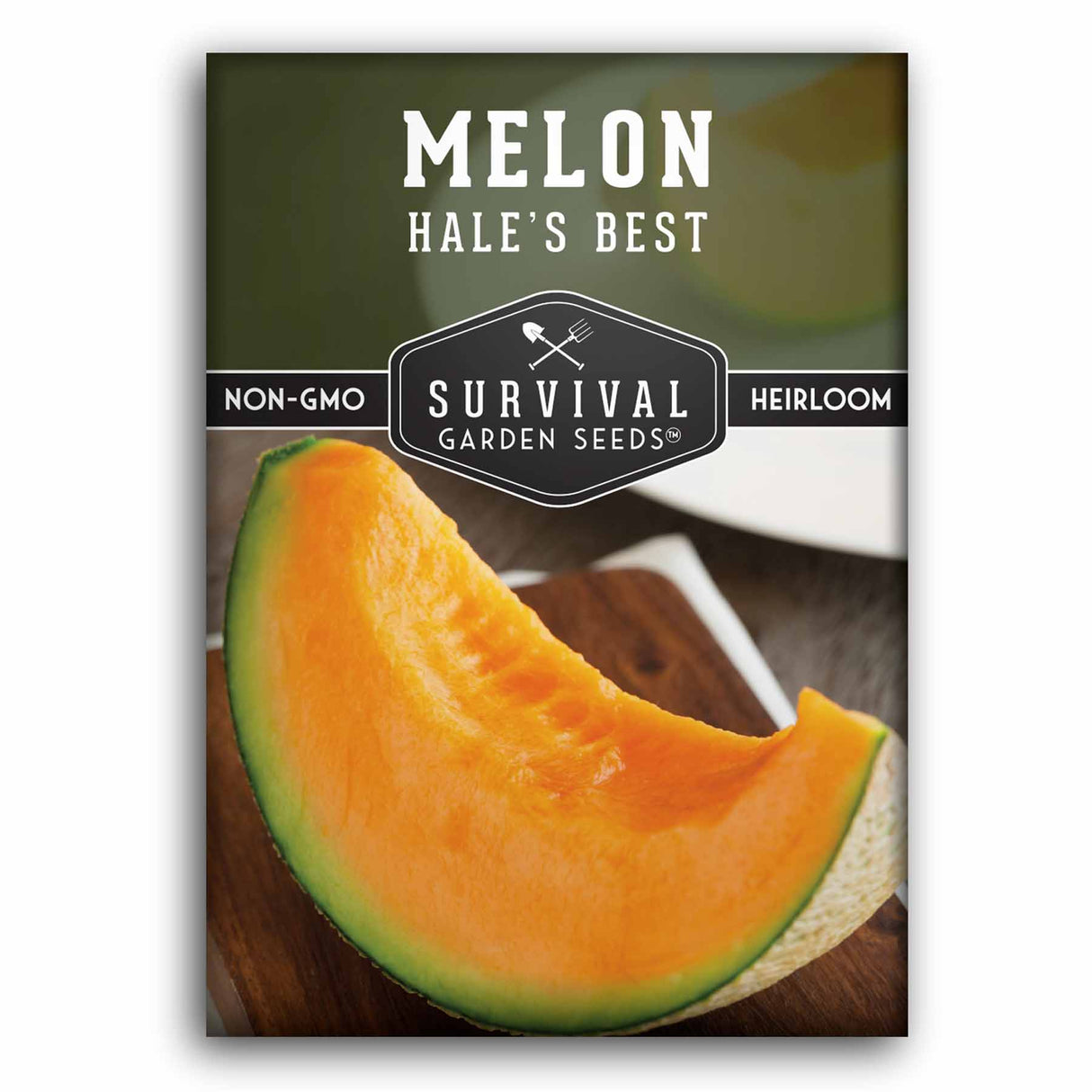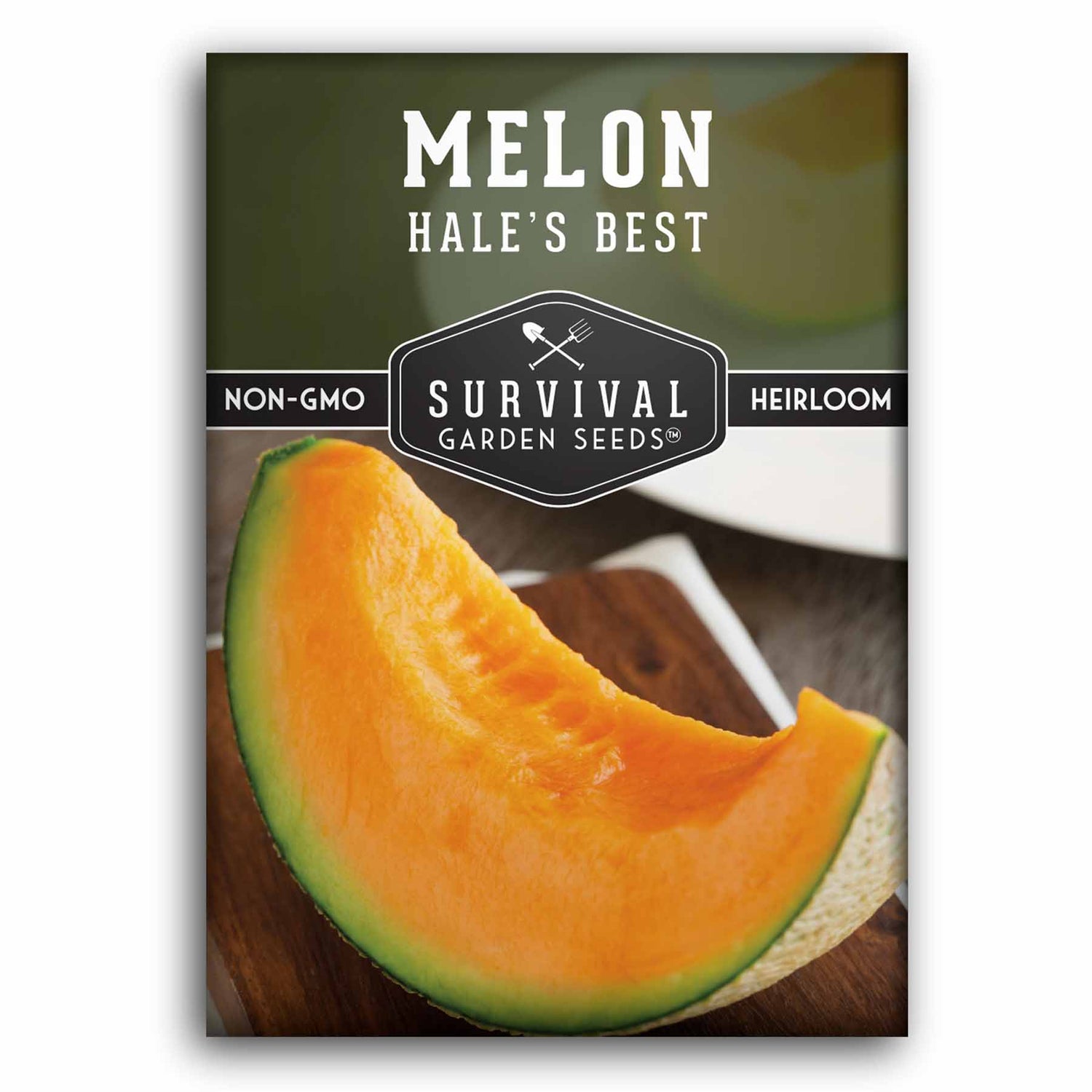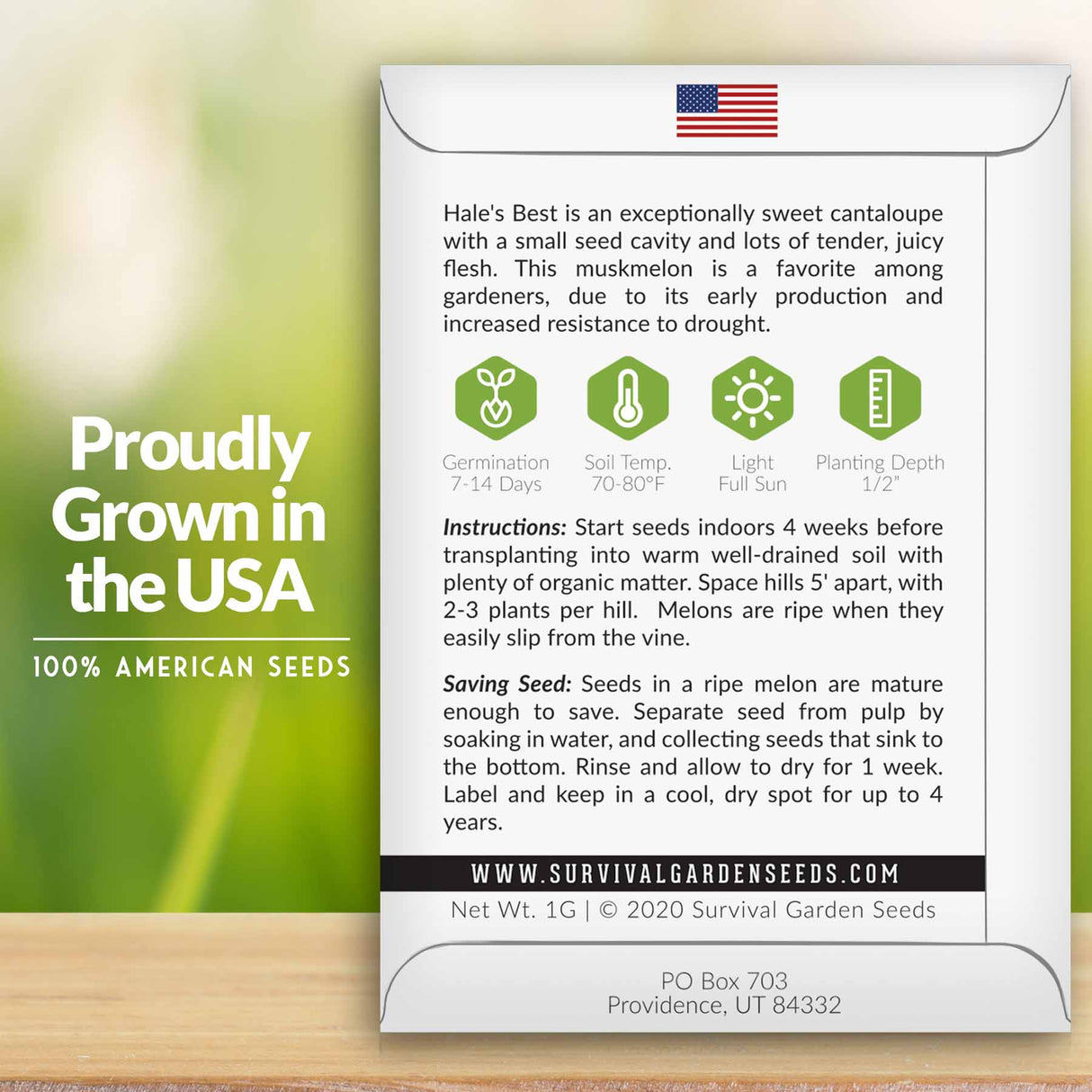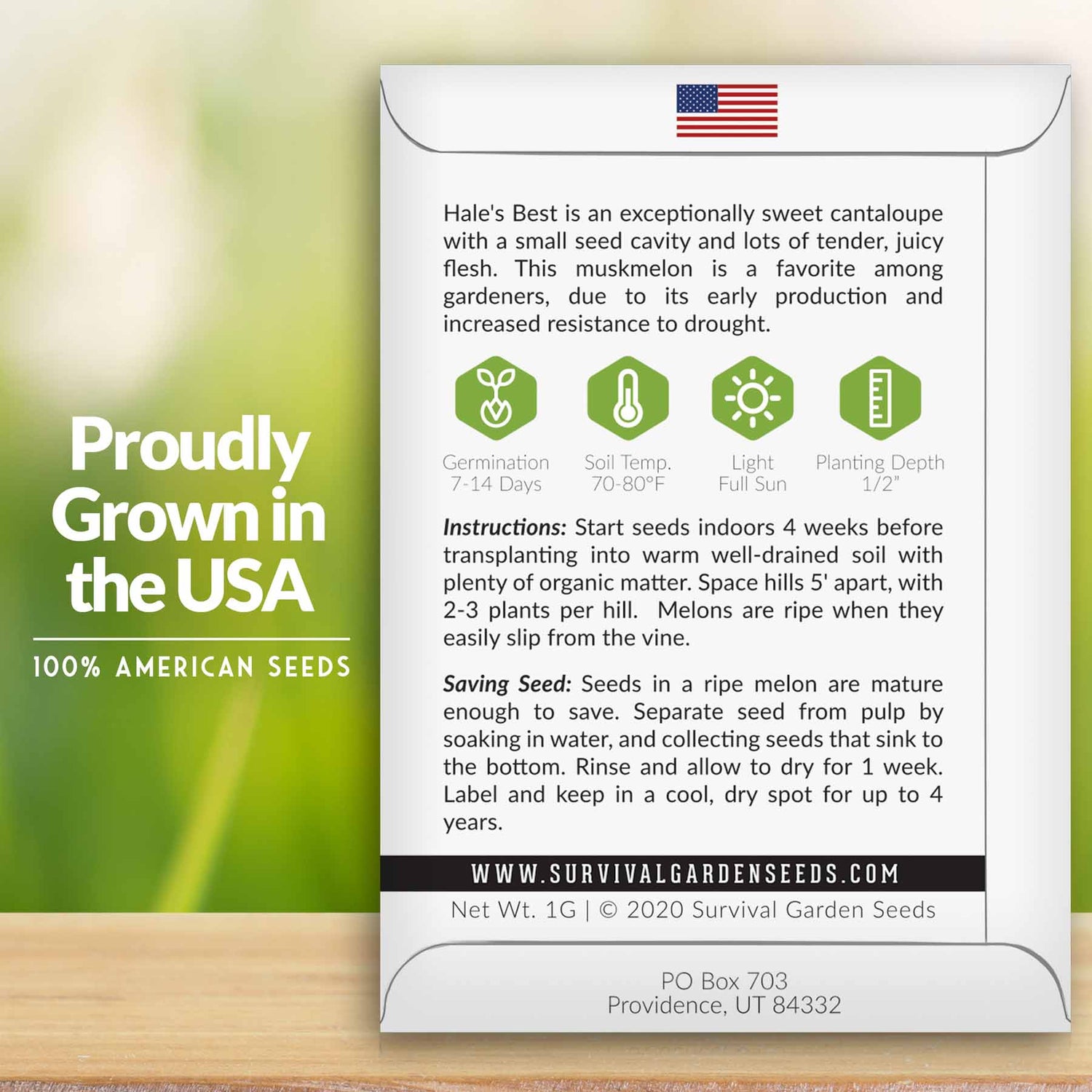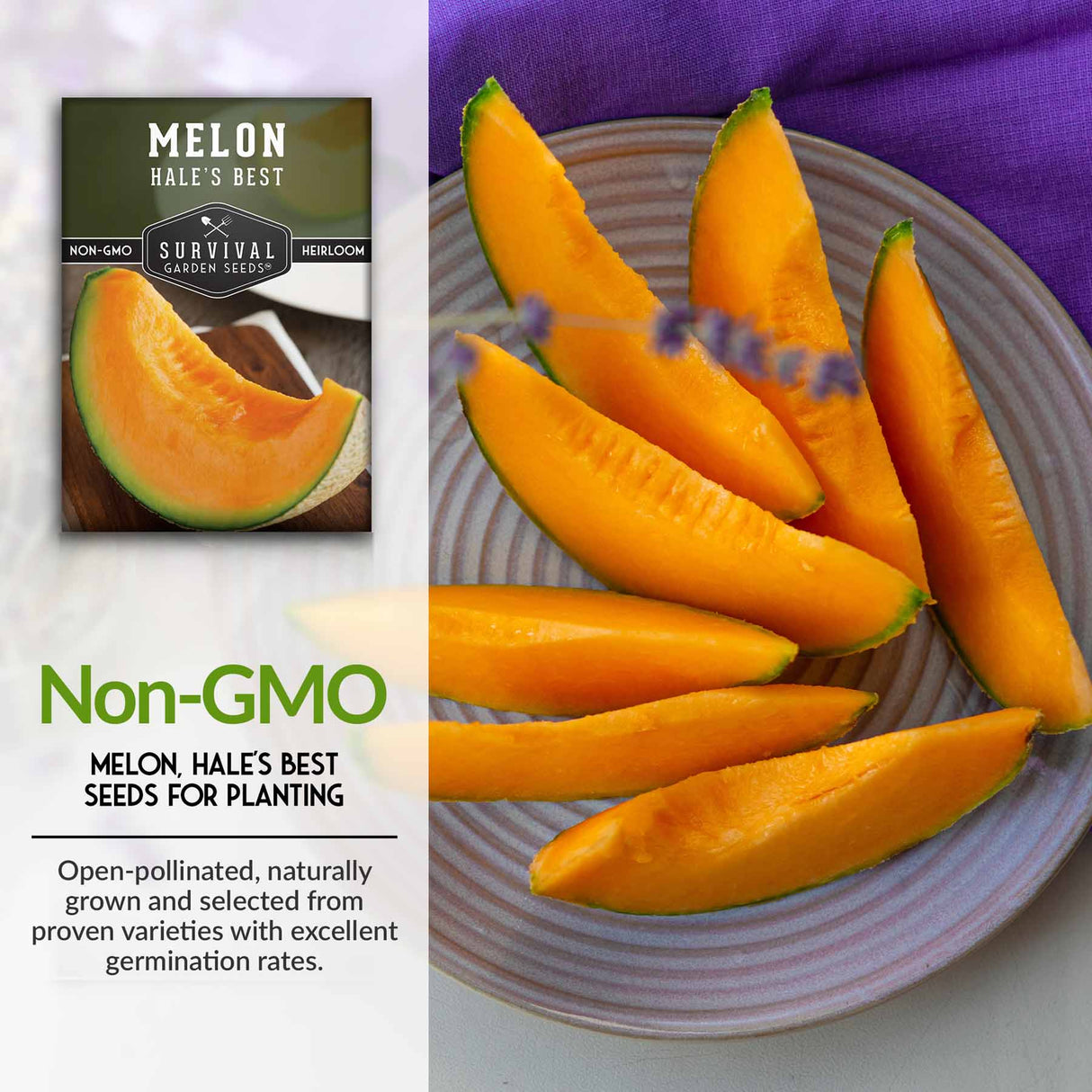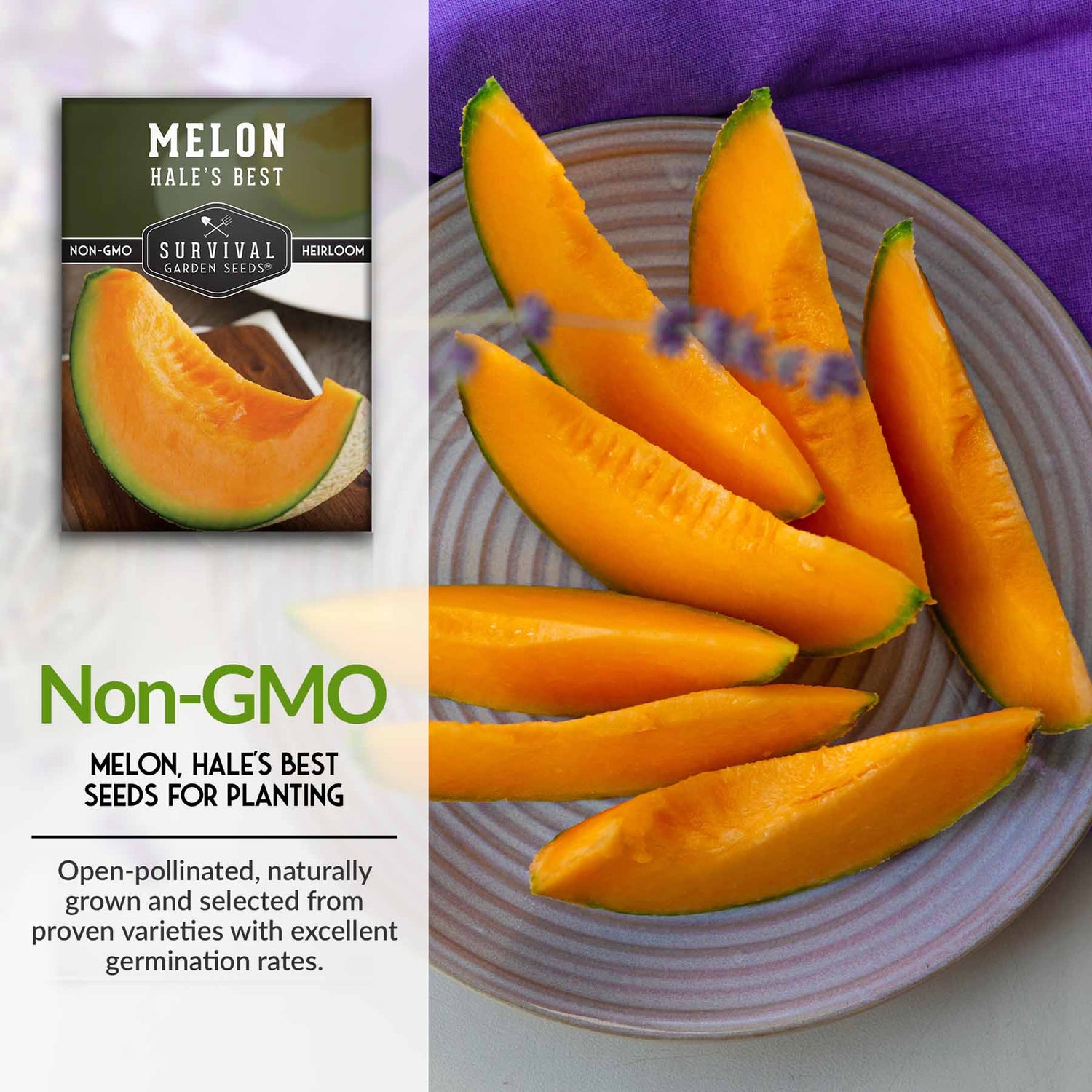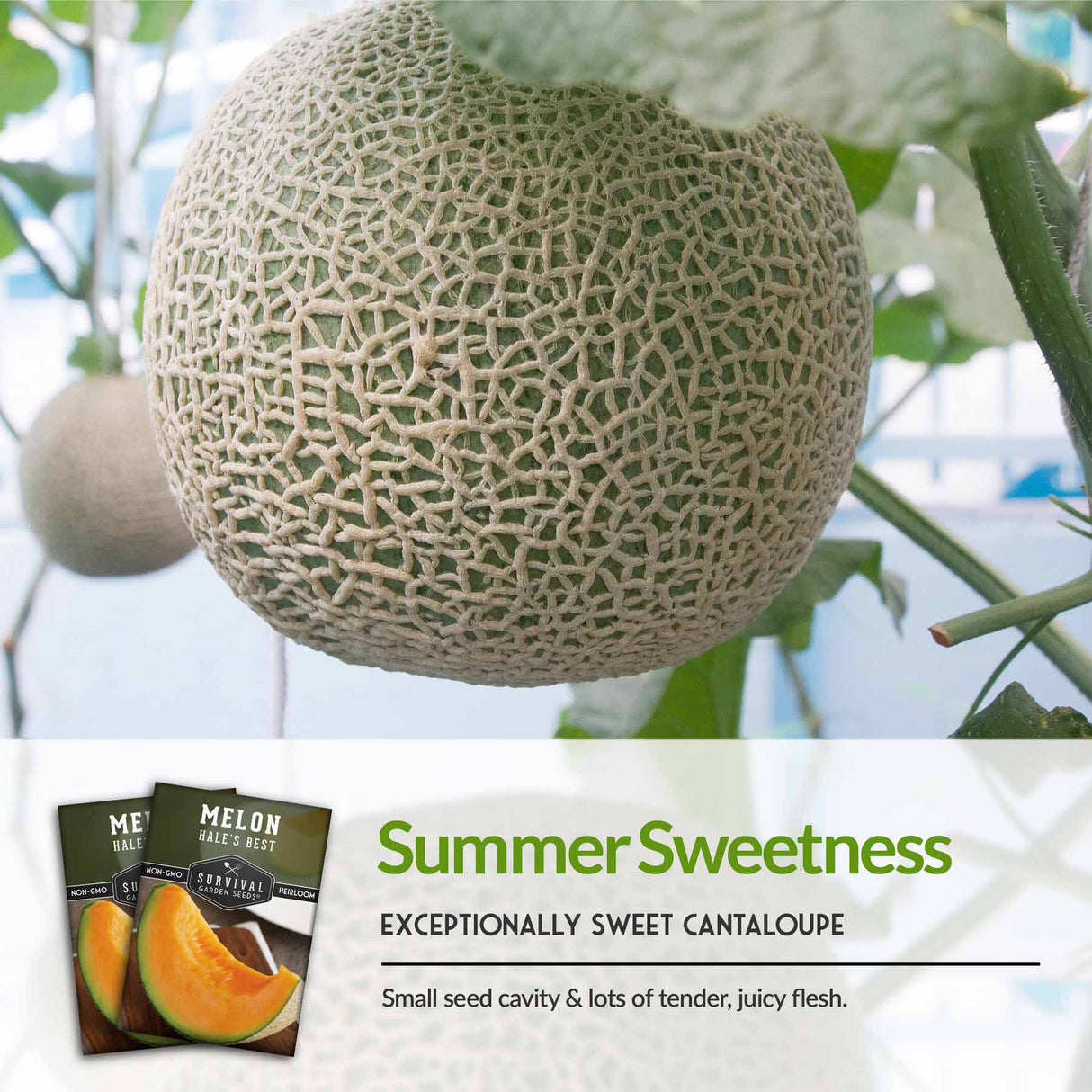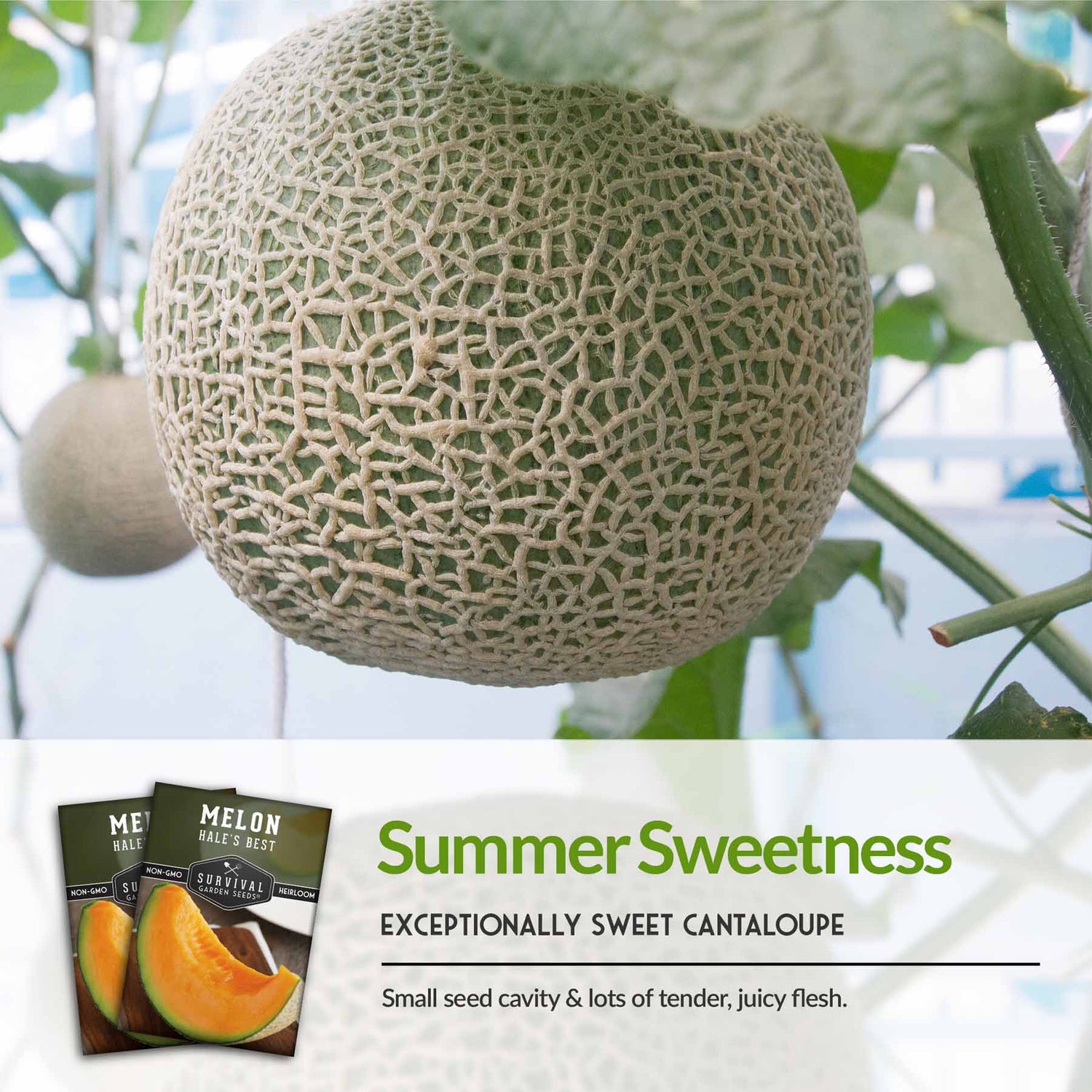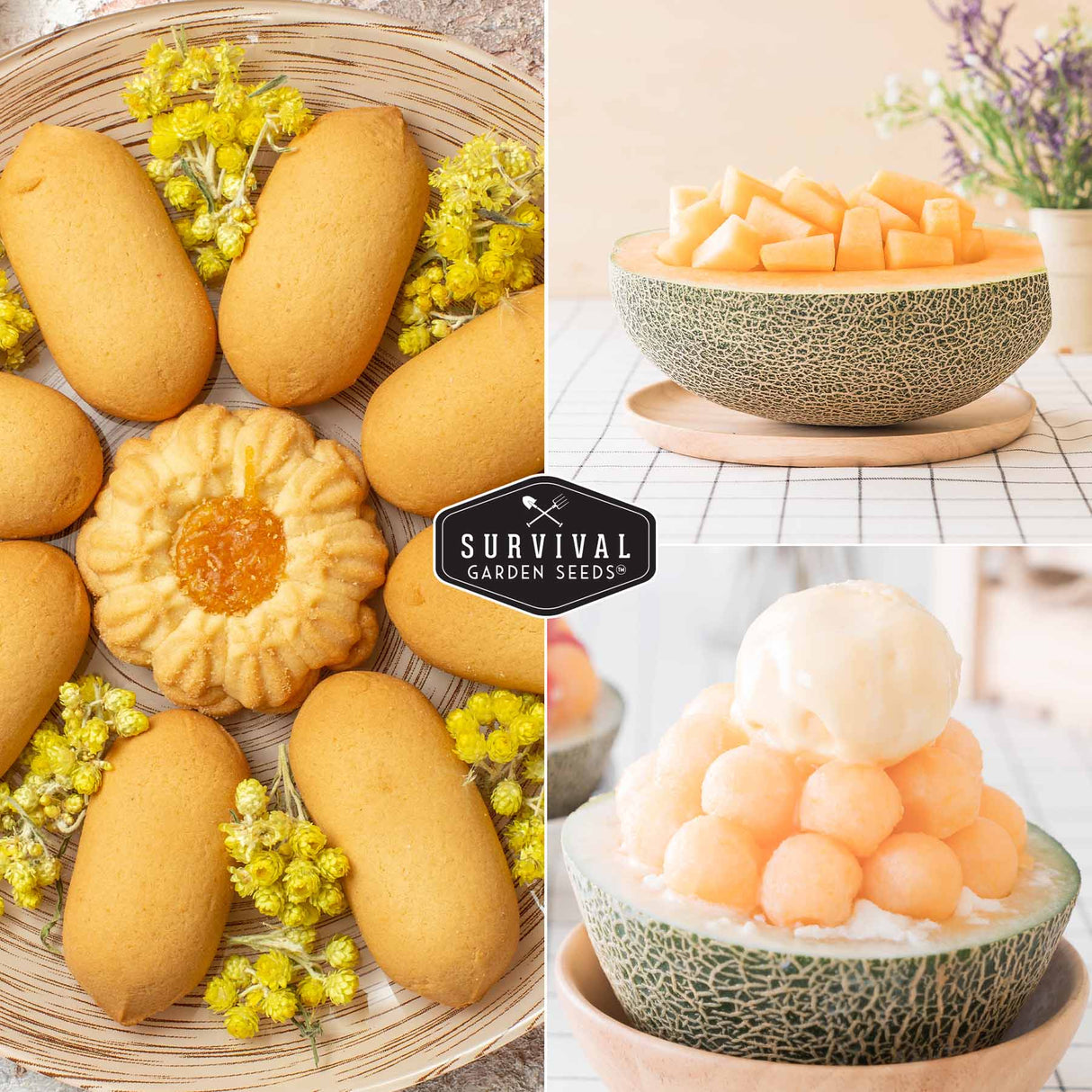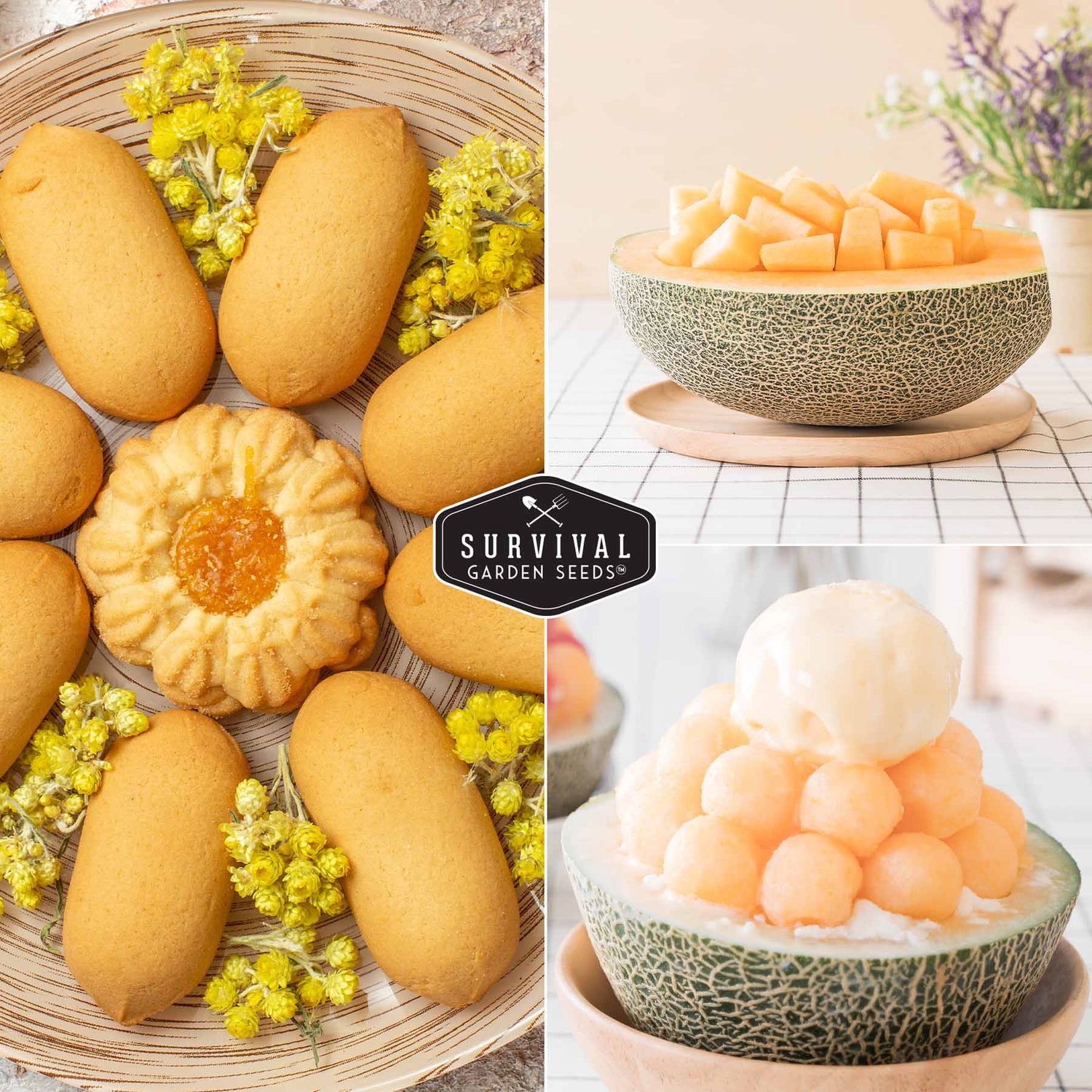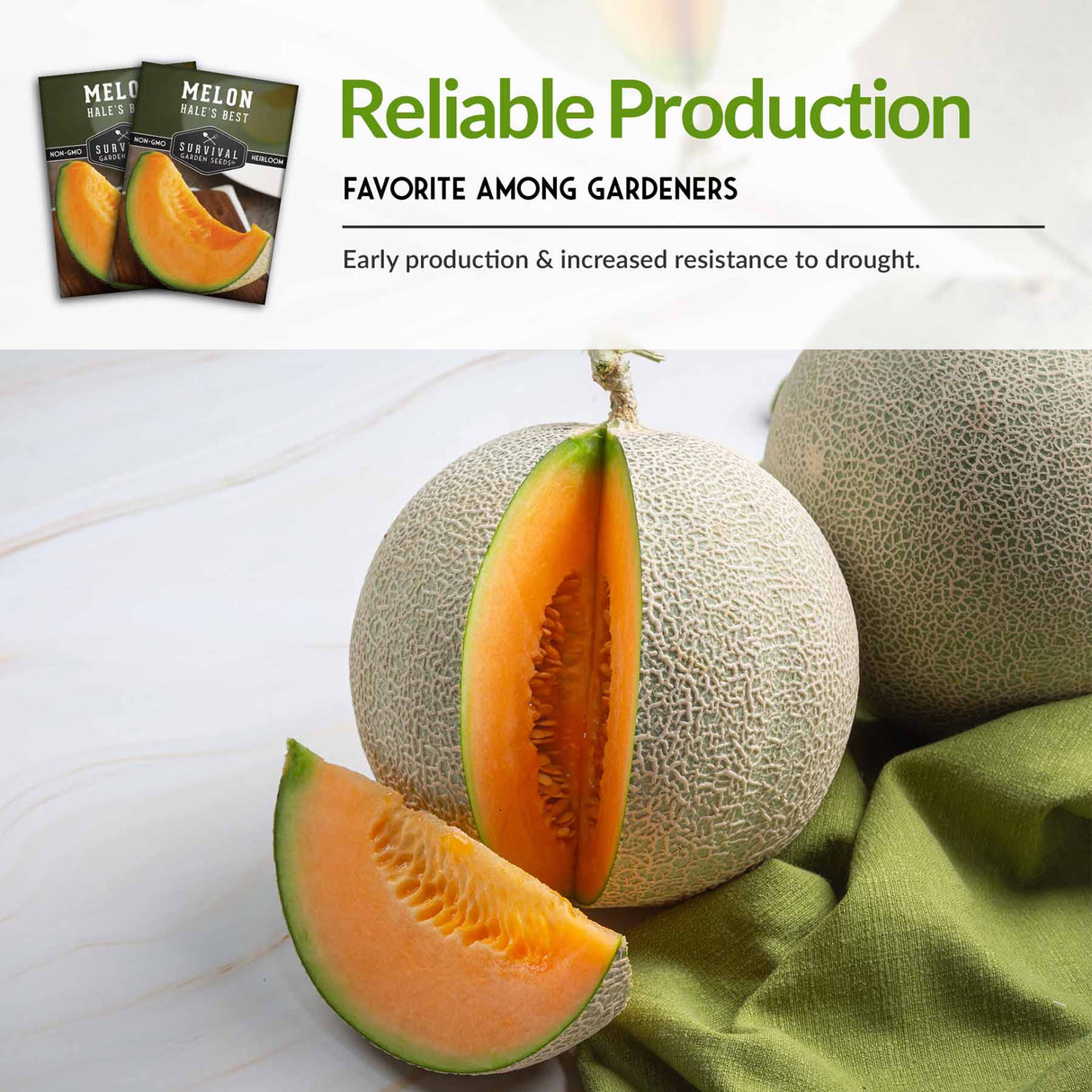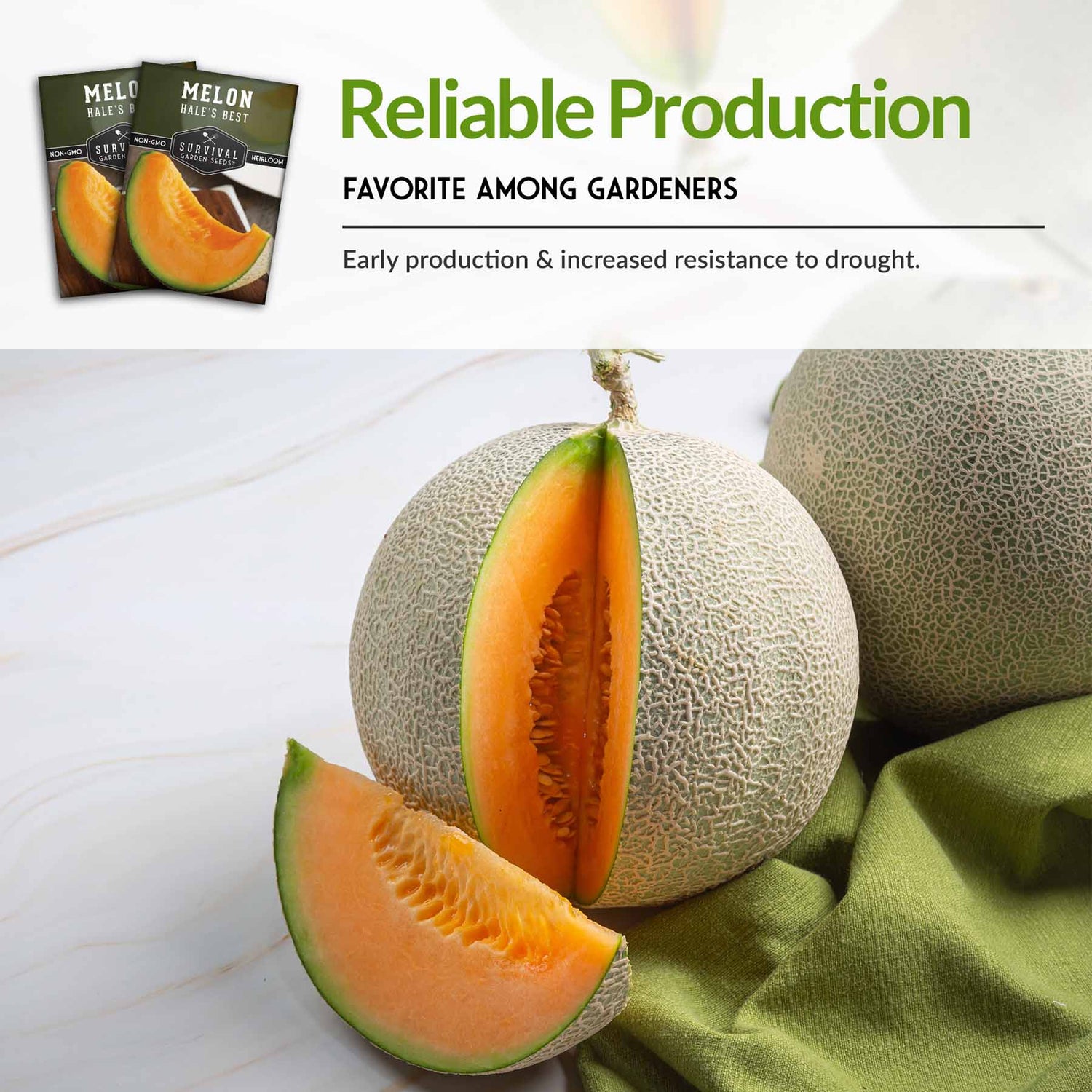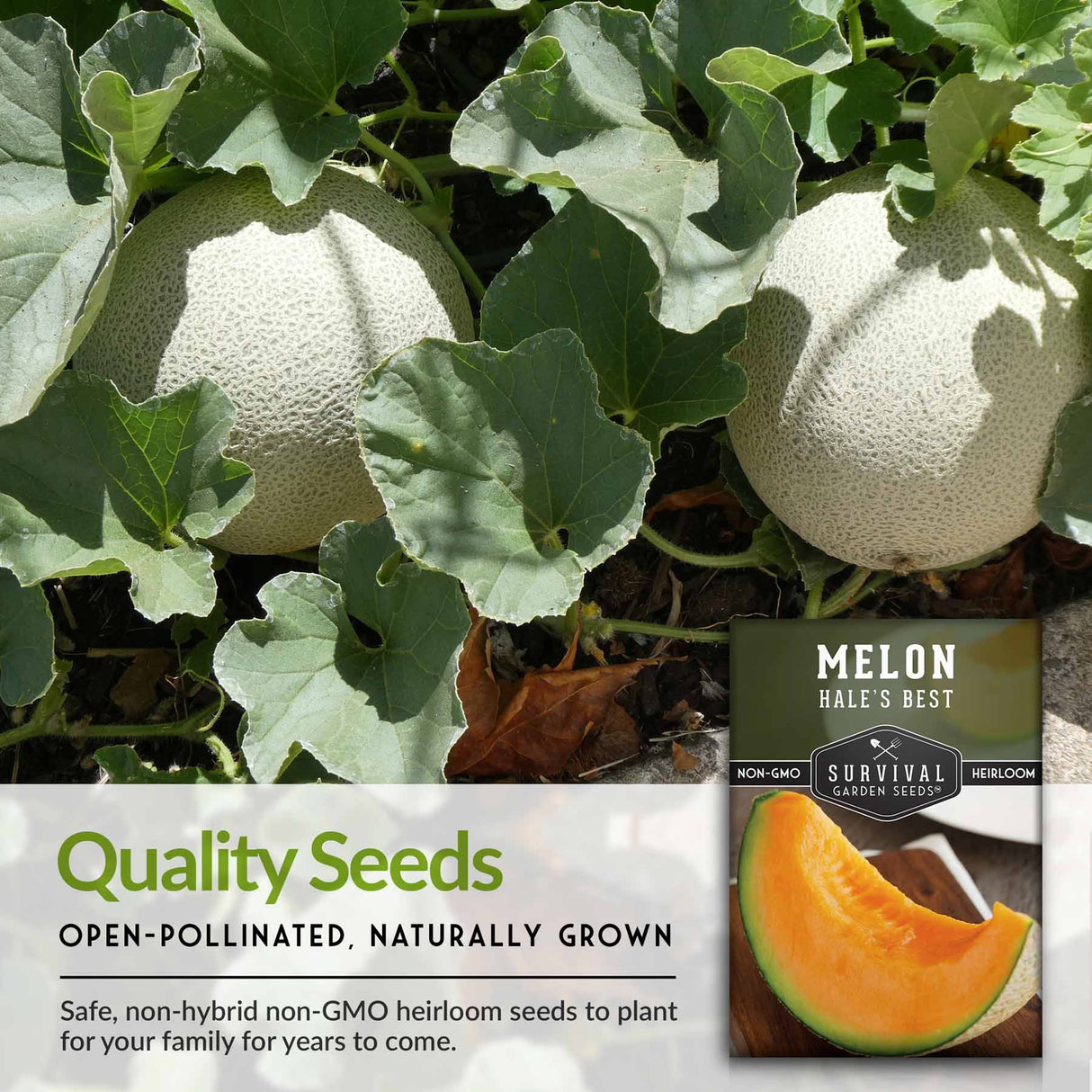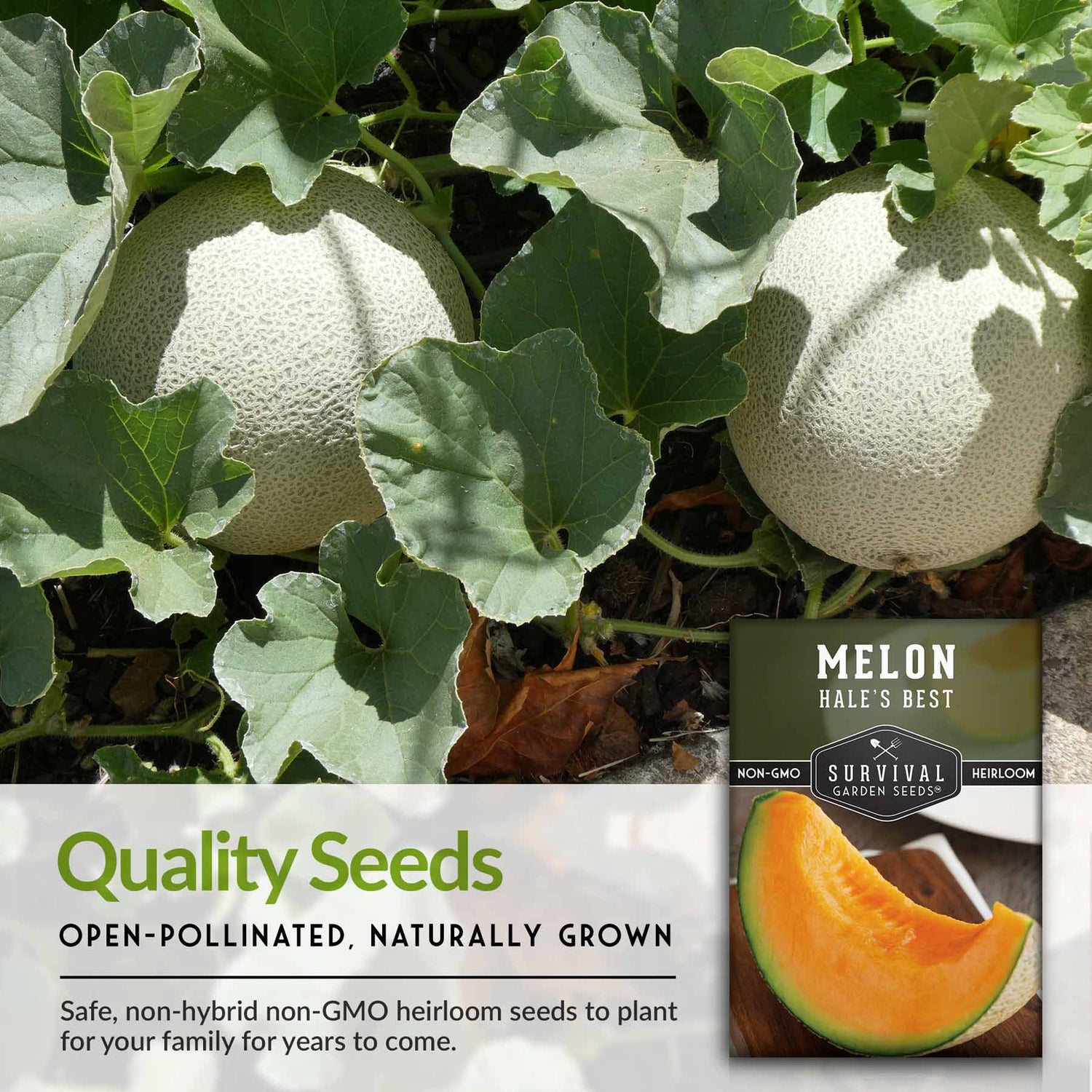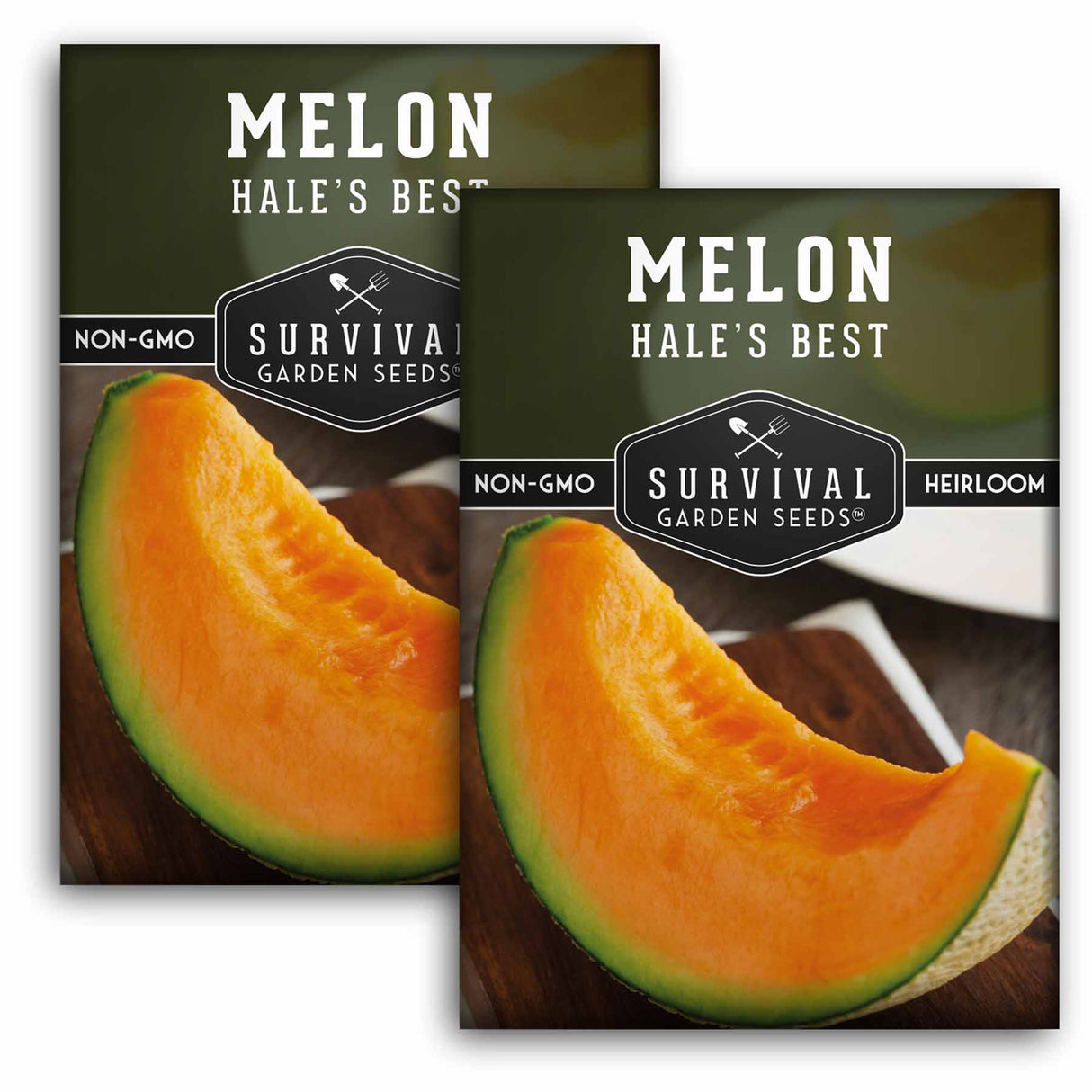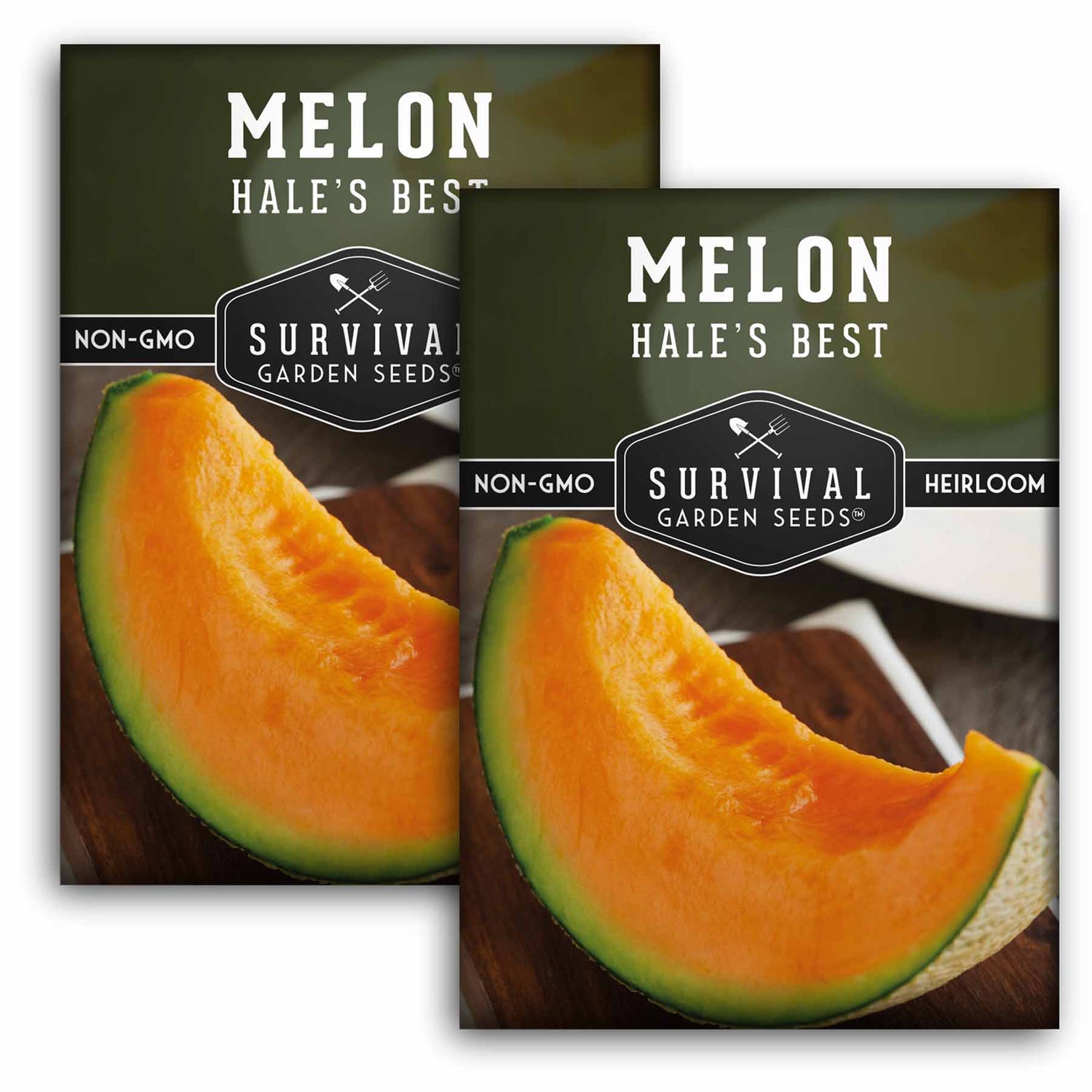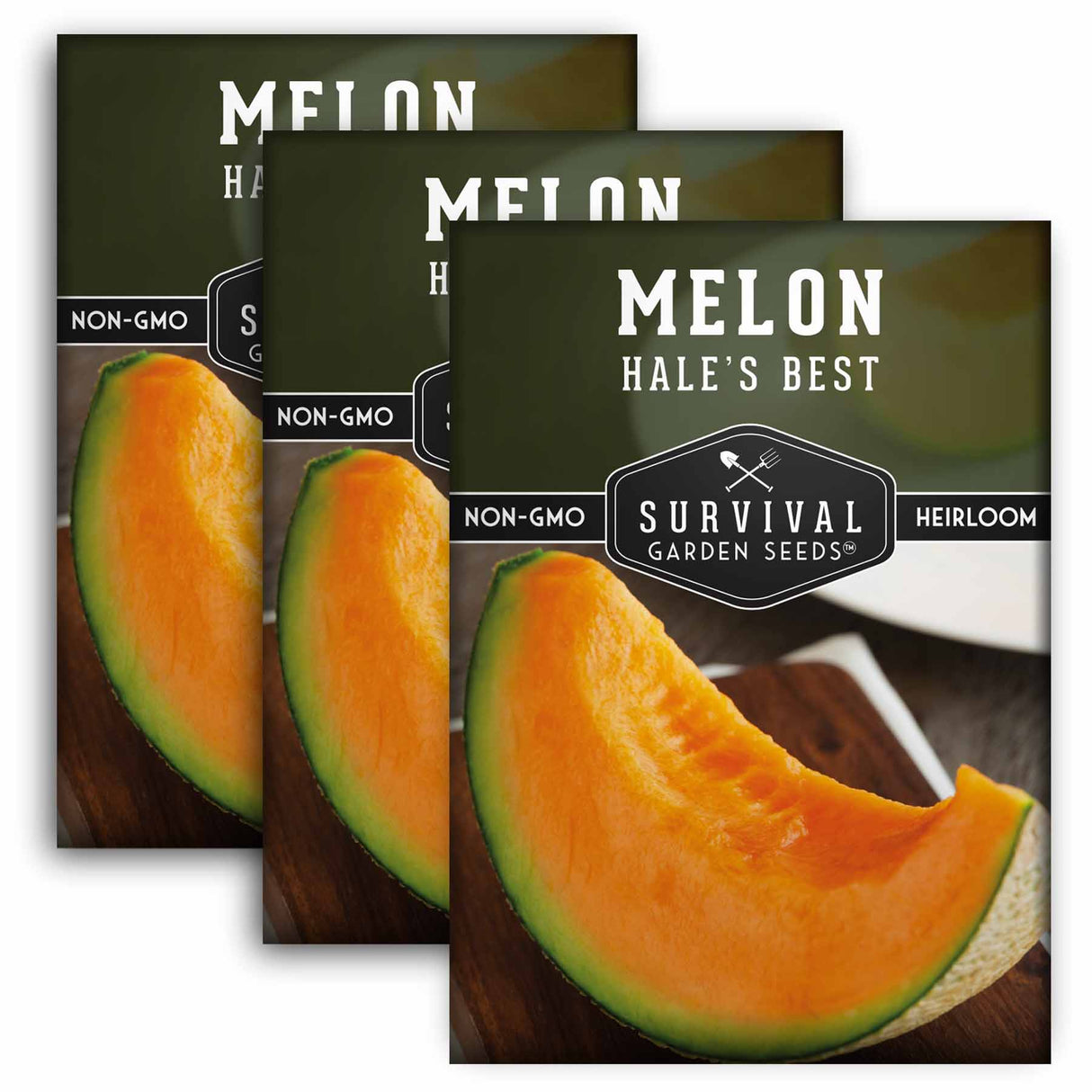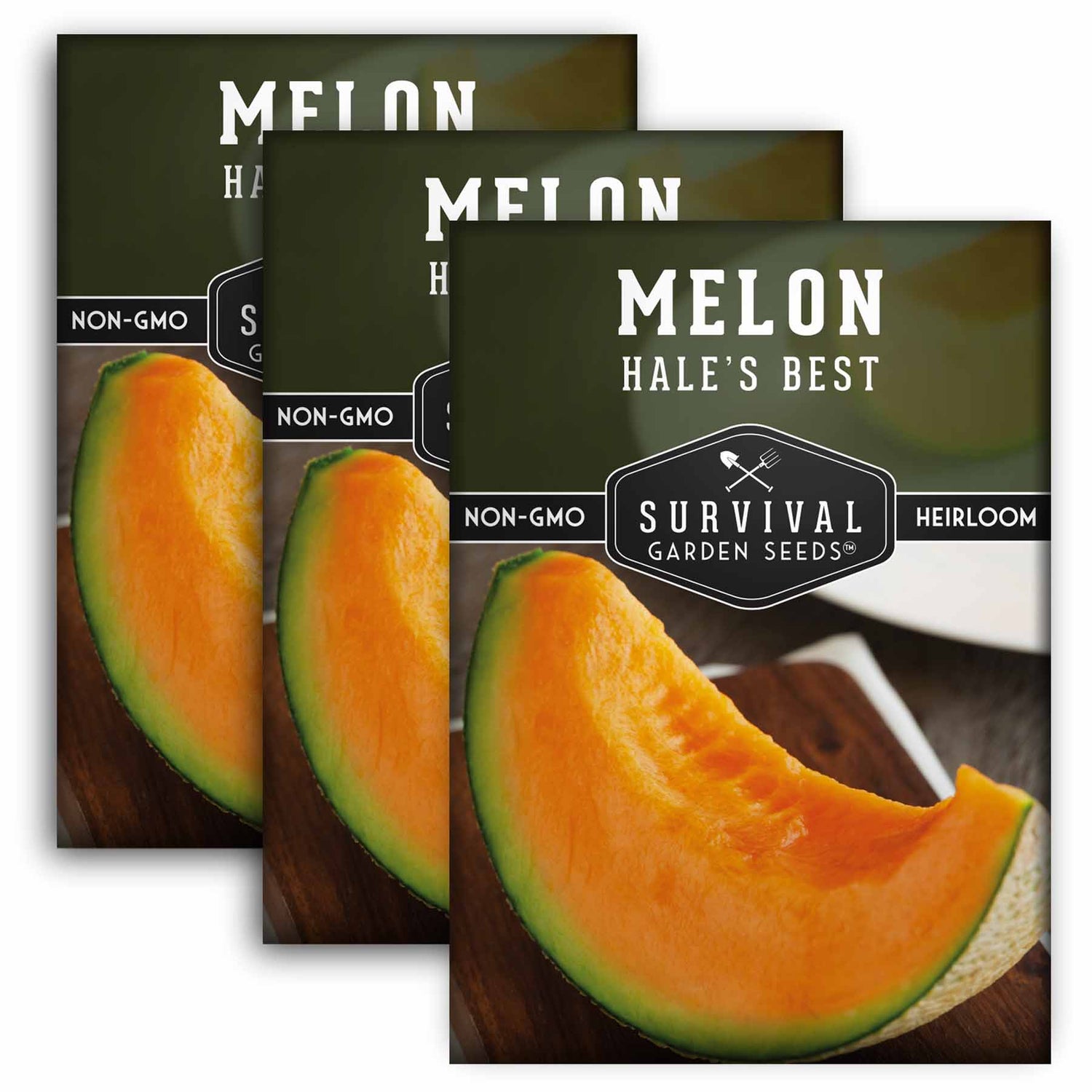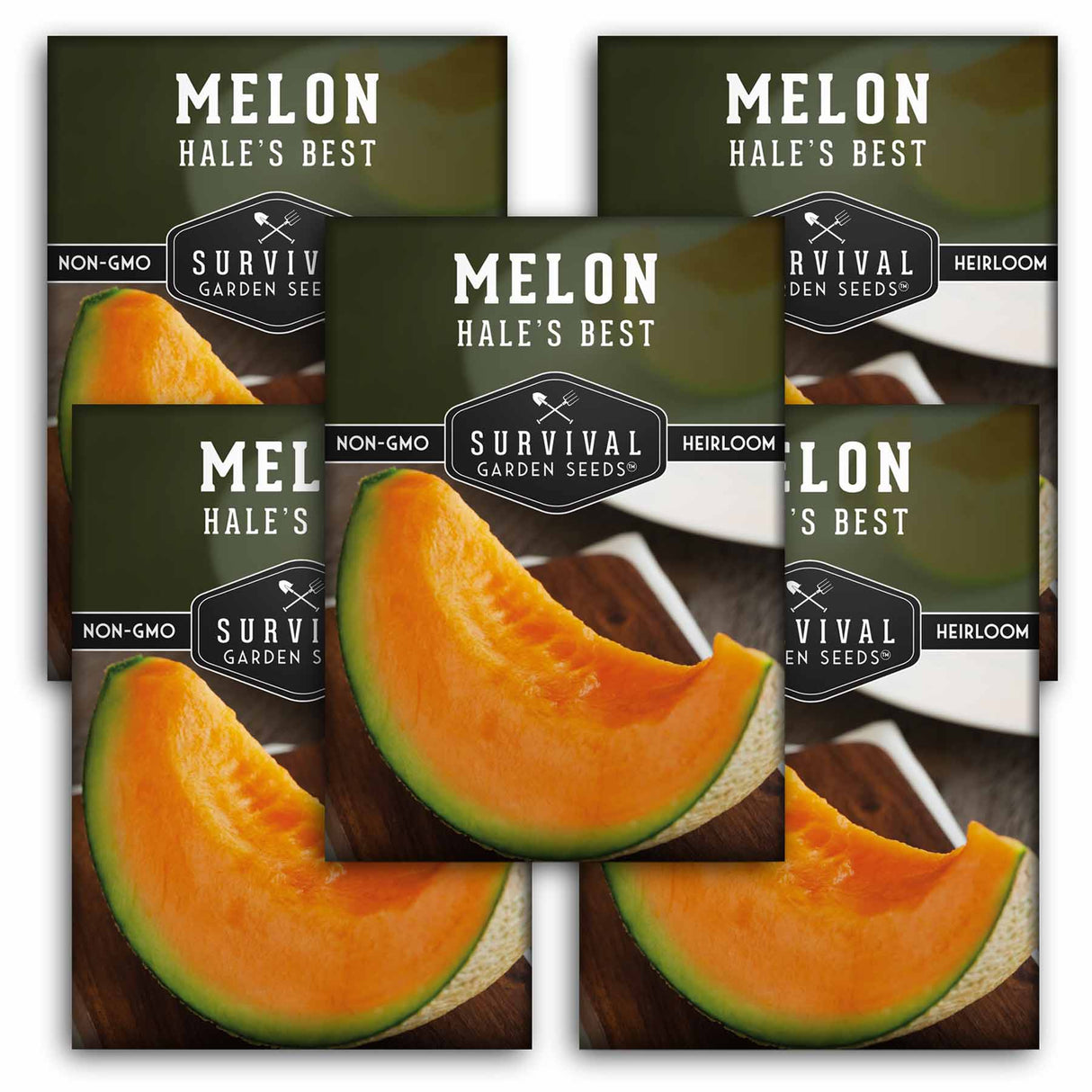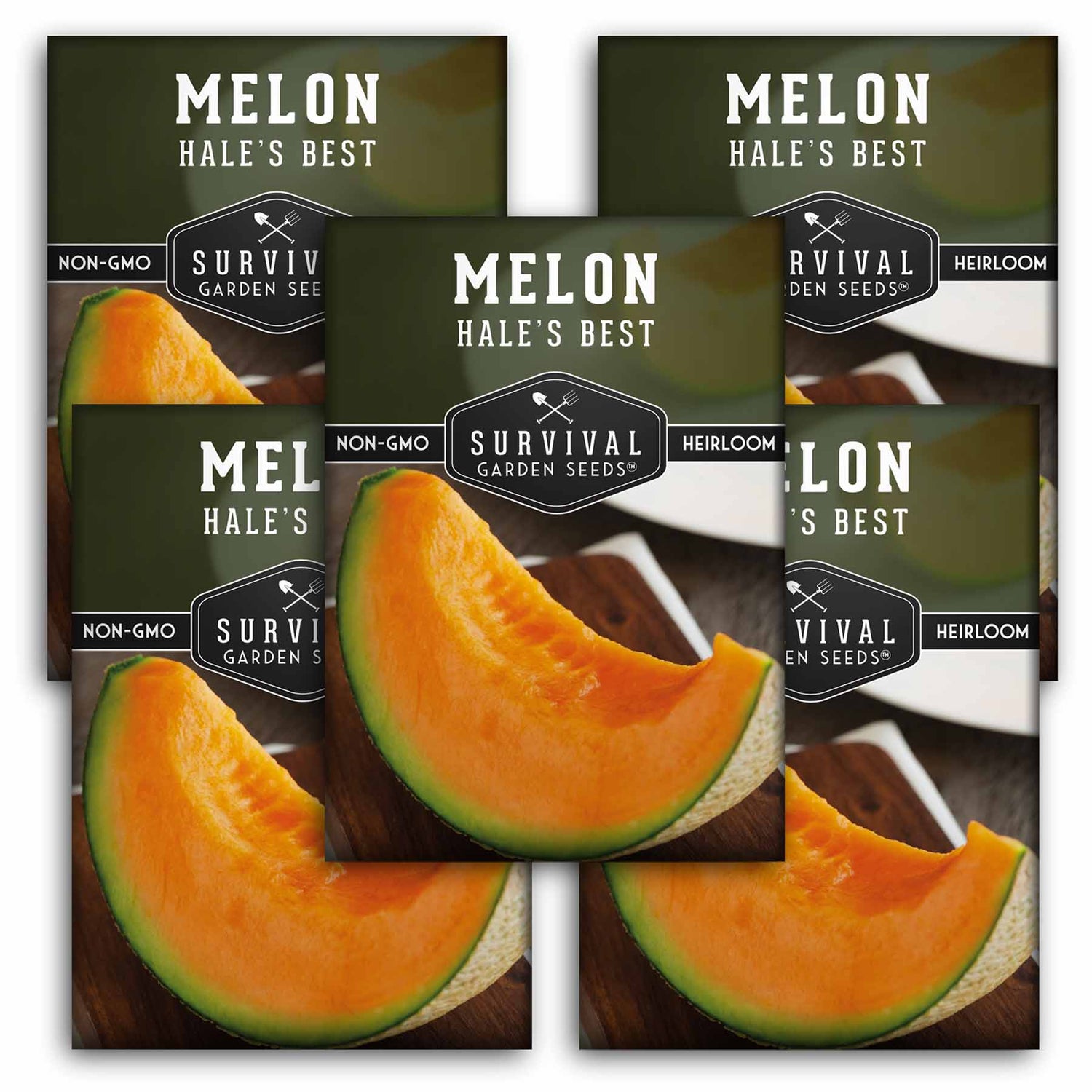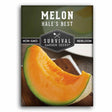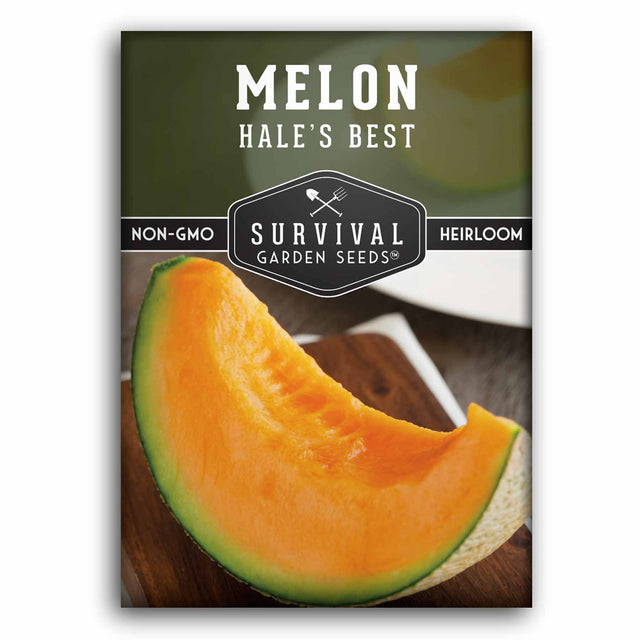Hale's Best Melon Seed
Hale's Best Melon Seed - 1 Packet is backordered and will ship as soon as it is back in stock.
Hale's Best is an exceptionally sweet cantaloupe with a small seed cavity and lots of tender, juicy flesh. This muskmelon is a favorite among gardeners, due to its early production and increased resistance to drought.
- Summer Sweetness - Hale's Best is an exceptionally sweet cantaloupe to eat with a small seed cavity and lots of tender, juicy flesh with high sugar content.
- Reliable Production - This muskmelon is a gardening favorite, due to its early production and increased resistance to drought.
Net Wt. 1G
Heirloom Vegetable Seeds
All of our seeds are open-pollinated, non-GMO, heirloom varieties with tested germination rates
Specifications
Specifications
-
Planting Zones
-
Light
-
Soil Temp for Germination
-
Germination Time
-
Planting Depth
-
Plant Size
-
Days to Harvest
-
Growing Instructions
-
Seed Saving Instructions
-
Approximate Number of Seeds Per Packet
Payment & Security
Your payment information is processed securely. We do not store credit card details nor have access to your credit card information.
Self-Reliance For The Future
- Sustainable Living - Vegetable gardening is an essential foundation of a more self-sufficient lifestyle. Home-grown fruits and vegetables are generally more flavorful and nutritious than store-bought.
- Easy to Grow - Seeds are packed in a beautiful paper packet with instructions for successful growing and germination in your own home garden. Each package also has instructions for saving seeds after harvest. Getting started is simple for both beginner and experienced gardeners.
- Quality Seeds - Plant now or store for future growing seasons. These seeds will remain viable for years if stored in a cool dry location. Our safe, non-hybrid non-GMO heirloom seeds are always open-pollinated, naturally grown, untreated, and selected to ensure the best germination rates
Frequently Asked Questions
What are heirloom seeds?
What are heirloom seeds?
Heirloom seeds are the types of seeds your grandparents grew. These varieties have been passed down from generation to generation. They’re old reliable open-pollinated varieties that aren’t typically grown commercially. Instead, they have a rich history that predates modern breeding techniques.
You can learn more about open-pollinated, heirloom, and non-GMO seeds in our Survival Garden Training blog.
Where are Survival Garden Seeds sourced?
Where are Survival Garden Seeds sourced?
The majority of our seeds are sourced in the United States, with a few exceptions when the seed is difficult to source domestically. Whenever we do have to source outside of the US, we ensure our seeds are safe to grow, non-GMO varieties that meet our standards for germination and reliability.
Are your seeds treated?
Are your seeds treated?
No, we do not pre-treat our farmer seeds. All of our garden seeds for sale are untreated, open-pollinated, non-GMO, and heirloom varieties. They are kept in temperature-controlled cooler storage until they are packed and shipped to keep them pest and disease-free.
In what zones can I grow your seeds?
In what zones can I grow your seeds?
The seeds in our collections are specifically chosen from varieties that can be successfully grown from Zone 3 to Zone 10 USDA Hardiness Zones. However, individual varieties have specific needs to thrive in different environments. Each seed pack has optimal temperatures for germination and instructions on seed starting. Consult local frost dates to plan your garden and get the most out of your seeds.
What is the shelf life of these gardening seeds?
What is the shelf life of these gardening seeds?
Our seeds will generally last for 3-10 years if they are appropriately stored in a cool, dry place. However, we encourage you to grow your survival seeds within a year or two of purchase. This yields the best germination rates possible and also gives you more experience growing survival food now. At the end of the growing season, follow the instructions on the back of each packet for saving seeds for future gardens. These new seeds for survival will be more adapted to thrive in the growing conditions where you are.

